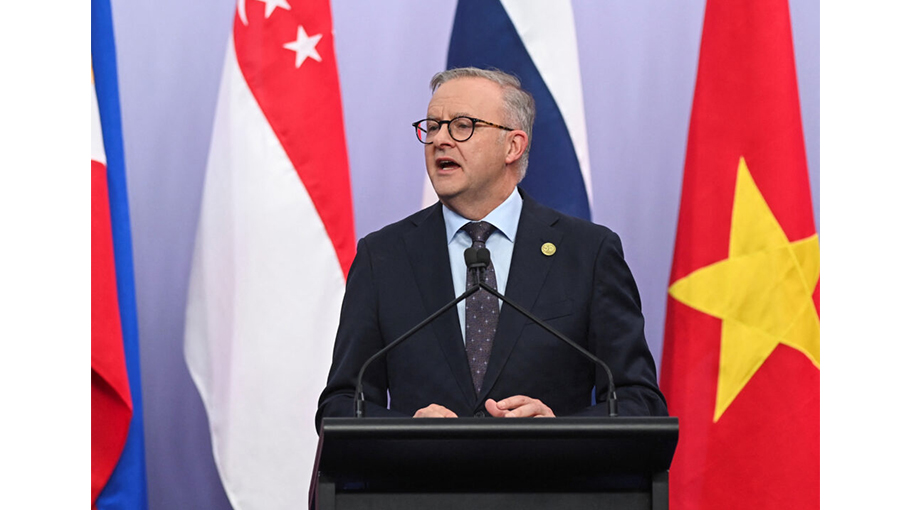ASEAN’s got a friend in Australia

The 2024 ASEAN–Australia special summit held in Melbourne in March 2024 celebrates 50 years since Australia became ASEAN’s first Dialogue Partner. This was the biggest foreign policy event of Prime Minister Anthony Albanese’s government held on Australian soil to date, reflecting the importance the government places on enhancing relations with Southeast Asia.
This is the second time that Australia has hosted Southeast Asian leaders in Australia — the first summit in 2018 was in Sydney under the government of former prime minister Malcolm Turnbull. Australia has gone on to sign a Comprehensive Strategic Partnership with ASEAN in 2021. At the 2024 ASEAN–Australia special summit, Timor-Leste’s leader was also included as ASEAN observer in recognition of the 2022 ‘in-principle’ support for Timor-Leste’s future accession to ASEAN.
While there were plenty of multilateral events throughout the summit, there were also a number of bilateral meetings occurring, which one observer referred to as ‘diplomatic speed-dating’. Prior to the summit, Philippine President Ferdinand Marcos Jr addressed the Australian parliament and highlighted the 2023 upgrade of the partnership between the Philippines and Australia from a Comprehensive Partnership to a Strategic Partnership.
The special summit highlighted the importance of Australia showing up in a region that has invested heavily in multilateralism and the associated concept of ‘ASEAN Centrality’. Under Australian Foreign Minister Penny Wong, diplomacy and presence has been the order of the day. She has visited every country in Southeast Asia, bar Myanmar, since the election of Albanese’s centre-left Labor Party government in 2022.
The fact that there are multiple pillars to this special summit reflects the multifaceted nature of ASEAN–Australia relations. The three-day summit included a leader summit and events addressing key focus areas of business, emerging leaders, climate and clean energy, and maritime cooperation.
Several significant announcements were made at the summit. The Australian government announced it was establishing a AU$2 billion investment financing facility — the Southeast Asia Investment Financing Facility — to boost investment in Southeast Asia, among other finance and economic initiatives. The investment financing facility will be managed by Export Finance Australia. It will provide loans, guarantees, equity and insurance to boost trade and investment relations, focussing on clean energy and infrastructure development.
One of the biggest news items was Wong’s speech at the Maritime Cooperation Forum Conference on 4 March 2024, where she expressed concerns about destabilising activities in the South China Sea and supported ASEAN’s approach to peace-building in the contested waters of Southeast Asia. She reaffirmed Australia’s support for regular dialogue, trust- and confidence-building, transparency, restraint and ‘the peaceful resolution of disputes in accordance with international law’.
Wong announced AU$40 million in new funding to enhance Australia’s Southeast Asia maritime partnerships and AU$222.5 million ‘to support resilience in the Mekong subregion’. This funding aims to expand Australia’s ‘maritime cooperation and contribute to security, prosperity and the management of maritime domains within the region’.
The ASEAN–Australia Leaders’ Vision Statement and Melbourne Declaration also highlighted a wide range of areas of cooperation. It emphasised people-to-people links, inclusive economic development and prosperity and collaboration on a range of shared challenges, including biodiversity loss, marine plastic debris and sustainable water management.
There was a nod to the strategic challenges in wanting to maintain an ‘open, inclusive and transparent rules-based regional architecture’ in the Indo-Pacific. Yet the language on this was broad and relatively benign, framed around some hallmark phrases of ASEAN strategic language. The two documents emphasised ASEAN centrality, sovereignty and territorial integrity, respectful, transparent and ‘open communication and dialogue’ and the peaceful settlement of disputes, including through the United Nations Convention on the Law of the Sea.
The fact that maritime cooperation was a key pillar of the special summit reflects the interests of ASEAN member states in grappling with shared challenges in what is a predominantly maritime geographic region. With the exception of Cambodia, all ASEAN member states plus Timor-Leste have coastlines. It is in the Southeast Asian region that some of the key norms and rules underpinning maritime order are increasingly coming under challenge as China rises in power and influence.
While ASEAN member states share a belief that the maritime matters for regional peace, prosperity and stability, China’s assertions and grey-zone activities has put pressure on ASEAN’s commitment to consensus decision-making. In 2012, ASEAN did not issue a joint communique for the first time in 45 years due to disagreement about China’s claims and activities in the South China Sea.
There are important questions to be addressed for ASEAN around maritime cooperation and negotiating differences in opinion among its member states. For example, whether ASEAN should borrow the ‘ASEAN minus X’ formula to deal with specific maritime issues where there is no consensus.
Another area of disagreement is the utility and risks of the binding China–ASEAN Code of Conduct agreement, still under negotiation despite decades of talks. At the 2024 ASEAN–Australia special summit, Singapore’s Prime Minister Lee Hsien Loong noted that the Code of Conduct may take time — though the first draft had been written, negotiations are still required. Some regional maritime experts have long expressed concern that such an agreement may diminish the role of the UN Convention on the Law of the Sea in establishing the normative and legal conditions for maritime order.
Yet sovereign and maritime disputes are only part of the story. These narratives of conflict and disorder tend to be showcased, promoted and sustained in the maritime marketplace of ideas, which is not surprising given the risks involved. But other stories need to be told about security, safety and stability in maritime Southeast Asia.
Other crucial issues of shared concern lie beneath geopolitics. These relate to economics, environmental and human security challenges. While there are many issues maritime Southeast Asian states must contend with, the work to address these issues creates avenues for enhancing partnerships between Australia, ASEAN and individual member states.
Bec Strating is Director of La Trobe Asia and Professor of International Relations at La Trobe University.
Source: East Asia Forum




